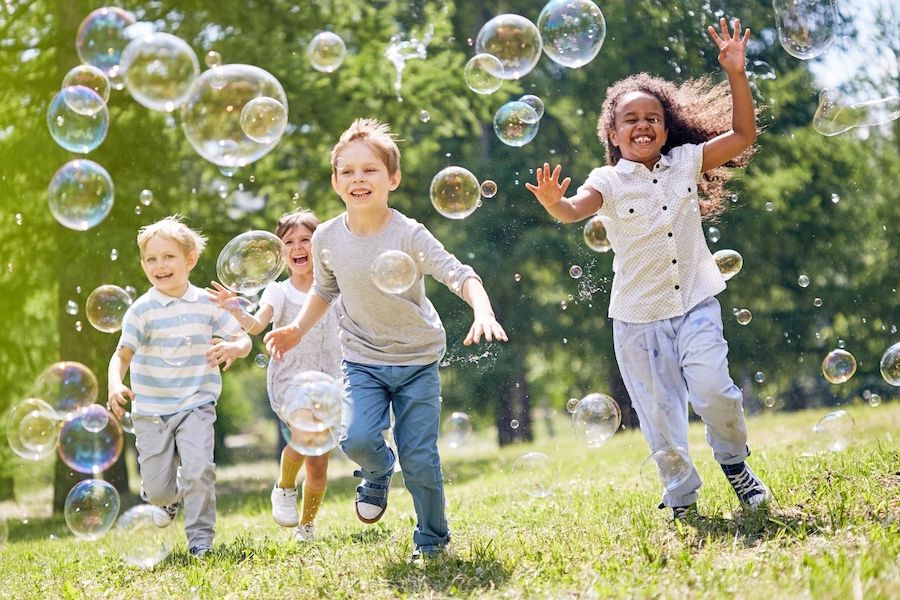In honor of the month of Valentines, we’re reflecting on friendship and its pivotal role in development.
In fact, friendship is the reason our founder, Mandy, started ICT. Nearly two decades ago when she was a new SLP, the mother of a child she was working with acknowledged that traditional speech and occupational therapy was important, but what she really wanted was for her son to have a friend.
Mandy understood the emotion behind the mother’s wish for her son to experience a hallmark of childhood, but she also understood that friendship, in and of itself, is foundational to child development. She went on to start ICT with the goal of weaving social communication into every intervention, so that children who struggle to navigate the complex social landscape can learn skills for relating to others… and making friends!
Why is Friendship So Important for Children?
Early friendships build:
Self-Esteem
Having a friend feels good! But beyond that simple fact, research shows that childhood friendships help children learn about themselves and develop a positive sense of self.
Social Skills
Skills like initiating interaction, taking turns, sharing, collaborating, resolving conflict, and engaging in back-and-forth conversation are constantly at play (ha) when children interact with friends. While they’re having fun, disagreeing, and creating together, they’re practicing foundational skills for every future relationship.
Theory of Mind
Theory of Mind (ToM) is the understanding that others have thoughts and feelings that are different than our own. We need it to be able to take someone else’s perspective, and to empathize with them. ToM often involves reading non-verbal cues and can be especially tricky for children with developmental differences, so we focus on it a lot in our group programs. We love to use Social Thinking® activities for this!
Pro-Social Behavior
Within the context of friendships, children learn that pro-social behaviors like kindness, compromise, self-regulation, assertiveness, apologies, and forgiveness are necessary for healthy friendships. Studies show that early childhood friendships that are pro-social-heavy lead to better emotional intelligence later in life.
How Can You Help Your Child Build and Keep Friends?
Here are few simple tips for nurturing friendships:
Be a Good Friend to Your Child
This isn’t about being their “buddy” – whether you’re their parent, caregiver, therapist or teacher, they do need you to set and enforce limits! But several studies suggest that you can teach and reinforce the foundations of friendship through your actions. Show interest in them, play with them, engage in turn-taking activities, demonstrate kindness and empathy, talk about emotions, apologize when it’s appropriate, and explore differences to emphasize theory of mind – “Yesterday we played your favorite game. How about today we play my favorite game?”
Help Plan Get-Togethers*
Create time in your child’s week to spend with peers. If friendship is a challenge, help seek out peers with similar interests as your child, and facilitate these activities (if they both like to climb trees, for example, plan to take them to the park).
Be Available to Offer Support
This is especially important for children who are still developing friendship skills. Depending on how much support your child needs, you can either play along and offer guidance in real-time, or you can observe from a distance and step in with suggestions if needed.
Coach Them in Group Situations
If you’re at a birthday party, for example, help them brainstorm what to do: “What do you think you could say if you want to join their game?” Or: “How do you think others will feel if you try to change the game?” You can tailor your brainstorming to your child’s personality, and even role-play these types of situations beforehand.
If you’re interested in learning more about our social communication services, please get in touch to learn about our local and virtual offerings!
*A note about COVID-19: We understand that get-togethers may look different for you right now. Set them up in a way that feels safe for you, such as meeting outdoors, or even playing a virtual board game.


Recent Comments